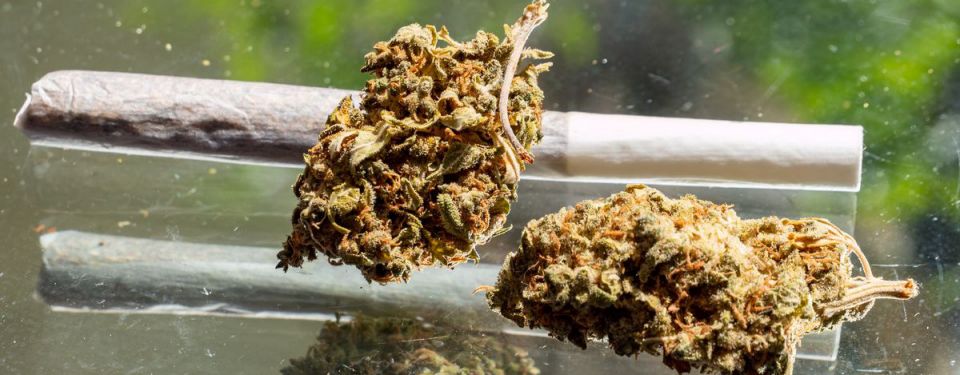
The amended law of 19 February 1973 on the sale of medicinal substances and the fight against drug addiction prohibits the sale, possession, transport and consumption in Luxembourg of drugs such as synthetic drugs (Ecstasy, speed, etc.), magic mushrooms (fungi), cocaine (cocaine, free-base, crack) and heroin.
However, the said law authorises the consumption of cannabis or products derived from the same plant by an adult in his or her home or usual place of residence. Consumption and possession elsewhere and consumption by minors are prohibited, as are the transport and purchase of cannabis or products derived from this plant.
However, domestic cultivation (indoors or outdoors) of a maximum of four cannabis plants per domestic community is permitted. The seeds used must be labelled with the name of the producer, the number of seeds and a health warning. The plants must not be visible to the public.
CANNABIS: PENALTIES STIPULATED
Fines that can be imposed by members of the Grand-Ducal Police and agents of the Customs and Excise Agency:
- Consumption of cannabis or products derived from the same plant in a place other than one's home or habitual residence: €145.
- Transport, possession or acquisition (against payment or free of charge) of 3 grams or less of cannabis or products derived from the same plant for personal use: €145.
Maximum penalties that may be imposed in the event of a criminal or judicial proceeding:
Offence |
Consumption, acquisition, transport and possession outside legally defined areas (amounts of 3g or less) |
Non-compliance with the growing location and number of plants authorised per domestic community |
Purchase, transport, possession (more than 3 g) |
Facilitating use for others |
Consumption in the presence of one or more minors, in schools and at work |
Offering to sell or other form of offer to minors |
Penalty |
A fine of up to €500 |
Imprisonment for up to 5 years and/or a fine of up to €250,000 | Imprisonment for up to 6 months and/or a fine of up to €2,500 |
A fine of up to €25,000 |
Imprisonment for up to 6 months and/or a fine of up to €2,500 | Imprisonment for up to 2 years and/or a fine of up to €25,000 |
OTHER DRUGS: MAXIMUM PENALTIES
Offence |
Consumption, acquisition, carrying, possession |
Consumption in the presence of minors or at the workplace |
Consumption with one or more minors |
Consumption at school |
Consumption as a teacher/school employee |
Penalty |
Imprisonment for up to 6 months and/or a fine of up to €2,500 |
Imprisonment for up to 1 year and/or a fine of up to €12,500 |
Imprisonment for up to 5 years and/or a fine of up to €1,250,000 |
Imprisonment for up to 5 years and/or a fine of up to €250,000 |
Imprisonment for up to 5 years and/or a fine of up to €250,000 |
FURTHER POSSIBLE CONSEQUENCES:
- Expulsion from school;
- Dismissal;
- Seizing of vehicle or mobile phone;
- Seizure, confiscation and destruction of substances;
- Refusal of authorisation to obtain a driving licence;
- Referral to a drug rehabilitation facility or centre;
- Entry on the criminal record.
CBD (Cannabidiol)
In regards to the various products containing cannabidiol (CBD), only those with a THC share of less than 1% are permitted according to the "Règlement grand-ducal du 26 mars 1974 établissant la liste des stupéfiants".
CBD as a smoking product:
- The use of the cannabis plant in herbal smoking products is only allowed if the product does not contain any tobacco and if the THC shre is below 1%.
- According to the amended Tobacco Control Act of 11 August 2006, it is forbidden to sell "herbal smoking products containing CBD" to persons under the age of 18.
CBD in other products:
The use of cannabis-derived ingredients such as cannabis resin, extracts and essences or hemp or hemp resin in cosmetic products is prohibited. Only hemp seed oils from an industrial plant with a THC share of less than 1% are legal.
Drugs and driving
Driving under the influence of drugs is prohibited. Although cannabis consumption is permitted under certain conditions, it may affect the driving of vehicles or handling of machines. Depending on the quantity and frequency of cannabis consumption, the level of THC in the blood can reach or exceed 1ng/ml, in which case driving constitutes an offence to the road traffic regulations.

